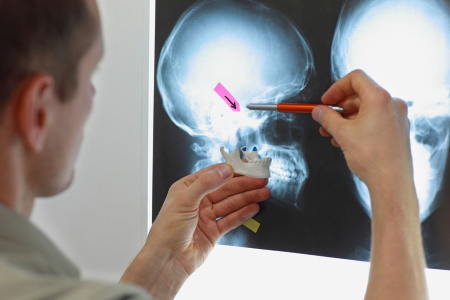
Introduction:
A fractured cheekbone, also known as a zygomatic fracture, can be a result of a variety of incidents. Whether caused by a fall, assault, or a car accident, a cheekbone injury can be both physically painful and emotionally distressing. Beyond the immediate pain, facial injuries can leave lasting impacts like scarring, altered facial symmetry, and even vision problems. If your cheekbone injury wasn’t your fault, you might be eligible to make a cheekbone injury claim in the UK to seek compensation for the physical and emotional toll it has taken. This guide provides an overview of the legal process to help you understand your rights and navigate the path towards potential financial recovery.
When Can You Make a Cheekbone Injury Claim?
You can make a cheekbone injury claim in the UK if the following conditions are met:
- You suffered a cheekbone injury: This includes fractures, dislocations, or damage to the surrounding tissues and nerves.
- The injury wasn’t your fault: The injury must have resulted from someone else’s negligence or deliberate act.
- Negligence: This means another party owed you a duty of care but breached that duty, leading to your injury. Here are some examples:
- Accidents in public places: Slips, trips, or falls on poorly maintained public property.
- Road traffic accidents: Car accidents, motorcycle accidents, or pedestrian accidents.
- Workplace accidents: Injuries sustained while performing your job due to employer negligence.
- Assault: Intentional attacks leading to a cheekbone fracture.
Time Limit of Cheekbone Injury Claim
The general time limit for making a personal injury claim, including cheekbone injury claims, in the UK is three years from the date of the accident or the date you became aware of the injury. There are some exceptions:
- Minors: Children under 18 have until their 18th birthday to make a claim.
- Mental incapacity: If you lack the mental capacity to make a claim due to the injury or another reason, the time limit may be suspended until you regain capacity.
Types of Compensation in Cheekbone Injury Claim
A successful cheekbone injury claim can lead to various types of compensation:
- Pain and Suffering: including any psychological Compensation for the physical pain and emotional distress caused by the injury, trauma associated with facial scarring or altered appearance.
- Loss of Amenity: Compensation for the loss of enjoyment of activities you used to participate in due to the injury, such as playing sports or socializing confidently.
- Medical Expenses: Reimbursement for the costs of treatment related to the cheekbone injury, including hospital stays, surgery (if needed), medication, physiotherapy, and dental work (if required due to the injury).
- Loss of Earnings: Compensation for any income you lose due to your inability to work while recovering from the injury.
- Care Costs: Reimbursement for the cost of any care you require due to the injury, such as home care assistance or childcare.
- Travel Expenses: Compensation for any travel costs incurred due to medical appointments or treatment related to the injury.
- Cosmetic Surgery: In some cases, if the injury has caused significant scarring or facial disfigurement, compensation may be awarded for corrective cosmetic surgery to improve your appearance.
How to Make a Cheekbone Injury Claim
- Gather Evidence: Collect documentation related to your injury, including:
- Medical records: Hospital reports, X-rays, CT scans, and treatment records documenting the extent of your injury.
- Accident report: If the injury occurred in an accident, obtain a copy of the accident report.
- Witness statements: If there were witnesses to the accident or your injury, get signed statements from them.
- Photographs: Take photographs of your cheekbone injury, including both before and after pictures if possible, to document the extent of the damage.
- Financial records: Keep receipts for any medical expenses or out-of-pocket costs related to the injury.
- Seek Medical Attention: Ensure you receive proper medical treatment for your cheekbone injury. This documentation becomes crucial evidence for your claim.
- Contact a Solicitor: A personal injury solicitor specializing in facial injury claims can assess your situation, advise on the claim’s viability, and guide you through the legal process.
- Letter of Claim: If your solicitor believes you have a strong case, they will send a letter of claim to the other party’s insurance company detailing the injury detailing the injury, the cause (alleged negligence), and the compensation you are seeking.
How it Works in the UK: Duty of Care and Cheekbone Injuries
The law in the UK dictates that individuals and organizations have a duty of care to others. This means they must take reasonable steps to avoid causing harm. Here’s how it applies to cheekbone injuries:
- Public Places: The owners or occupiers of public places have a duty to ensure their premises are reasonably safe for visitors. For example, a restaurant owner might be liable if a faulty step causes you to fall and fracture your cheekbone.
- Road Traffic Accidents: Drivers have a duty of care to other road users, including pedestrians, cyclists, and other drivers. A reckless driver who causes an accident resulting in a cheekbone injury could be held liable.
- Workplace Accidents: Employers have a legal duty to ensure the safety of their employees. This includes providing proper training, maintaining equipment, and minimizing potential hazards. If your cheekbone injury occurred due to a work-related accident caused by employer negligence, you might have a claim.
- Assault: If someone deliberately attacks you, causing a cheekbone fracture, you can potentially make a claim against them for compensation.
Cheekbone Injury Claim Process Explained: Stages and Potential Outcomes
The cheekbone injury claim process can take several months, but understanding the stages helps you stay informed:
- Pre-action stage: This involves gathering evidence (medical records, accident report, photographs), consulting a solicitor, sending a letter of claim, and negotiating a settlement with the other party’s insurer.
- Investigation: The insurance company will investigate the claim, requesting additional details from the other party and reviewing your evidence. This may involve obtaining medical reports from independent medical experts specializing in facial injuries.
- Expert Opinions: In some cases, your solicitor might recommend obtaining further independent medical expert opinions to support your claim and assess the severity of the injury, including any long-term functional or cosmetic impacts.
- Settlement Offer: The insurance company may offer a settlement after their investigation.
- Negotiation: Your solicitor will negotiate on your behalf to ensure the settlement offered reflects the seriousness of your injury, the impact on your life, the cost of treatment, and any potential loss of future earnings.
- Court Proceedings: If negotiations fail to reach a satisfactory settlement, the case may progress to court. Your solicitor will represent you, presenting evidence and arguments to prove the other party’s negligence and its link to your cheekbone injury.
- The outcome of your claim can be:
- Settlement: This is the most common outcome, reached during negotiation. You receive a lump sum compensation agreed upon by both parties.
- Judgment for you: If the case goes to court and the judge rules in your favor, you receive the compensation amount awarded by the judge.
- Judgment for the Defendant: The court might rule in favor of the other party if they successfully argue they did not breach their duty of care or the evidence doesn’t support a causal link between their actions and your injury.
The Importance of Legal Representation in Personal Injury Claims
Cheekbone injury claims can involve complex medical issues and legal arguments. Having a personal injury solicitor specializing in facial injury claims on your side is crucial for maximizing your compensation. Here’s why:
- Understanding Facial Trauma: These solicitors understand the various types of cheekbone fractures, treatment options, potential long-term complications (like nerve damage or vision problems), and the specific medical evidence needed to present a strong case. They can effectively communicate the severity of your injury and its connection to the accident or negligence to medical experts and the court.
- Evidence Gathering and Evaluation: They can help gather and present evidence effectively, including medical records, independent medical reports, photographic evidence of your injury (both before and after pictures if possible), and proof of the costs associated with treatment and lost earnings.
- Negotiation Skills: Solicitors are skilled negotiators who can advocate for the maximum Solicitors are skilled negotiators who can advocate for the maximum compensation you deserve during discussions with the insurance company. They can present a compelling case for the impact the cheekbone injury has had on your life, including the physical pain and suffering, emotional distress (like anxiety or depression due to facial disfigurement), loss of amenity, and any functional limitations it has caused (like difficulty eating or speaking).
- Court Representation: If your case goes to court, your solicitor will represent you effectively. They will present evidence and arguments to prove the other party’s negligence and the resulting injury, and fight for the compensation you deserve.
Advantages of Making a Cheekbone Injury Claim
Making a successful cheekbone injury claim offers several advantages:
- Financial Security: Compensation can help cover the costs associated with your cheekbone injury, including medical treatment (surgery, medication, physiotherapy), dental work (if needed due to the injury), and any care costs or lost income due to your inability to work. Additionally, if the injury has resulted in significant scarring or facial disfigurement, compensation may contribute towards corrective cosmetic surgery to improve your appearance.
- Accountability for the Negligent Party: A successful claim holds the party responsible for your injury accountable. This can be a supermarket that failed to maintain a safe environment leading to your fall, or a driver whose reckless actions caused a car accident resulting in your cheekbone fracture.
- Emotional Closure: While compensation cannot erase the experience of a cheekbone injury and the physical and emotional toll it takes, pursuing a claim can provide a sense of justice and closure. Knowing you took steps to address the negligence that caused your injury can be empowering, especially if the injury has impacted your confidence and self-esteem.
Conclusion:
A cheekbone injury can be a life-altering experience, but you don’t have to navigate the legal process alone. Understanding your rights and the potential benefits of making a claim can empower you to seek the compensation you deserve. Consulting a personal injury solicitor specializing in facial injury claims is crucial to maximize your chances of a successful outcome. By taking these steps, you can potentially secure the financial security to support your recovery, hold the negligent party accountable, and move forward with a sense of closure.
Disclaimer:
This article provides general information and does not constitute legal advice. It’s recommended to consult a qualified solicitor for personalized legal guidance on your specific cheekbone injury claim situation.
FAQs:
- What if I have a pre-existing facial injury?
The existence of a pre-existing facial injury doesn’t necessarily prevent a successful claim. A solicitor can assess your situation and determine if the accident or negligence aggravated the pre-existing condition. If so, you might be eligible for compensation for the worsening of your symptoms due to the new inj.
- Can I claim if the accident was partially my fault?
The concept of contributory negligence applies in the UK. This means that if you are found to be partially responsible for the accident, your compensation award may be reduced to reflect your share of the blame. A solicitor can help you understand the potential impact of contributory negligence on your claim.
- How much compensation can I expect from a cheekbone injury claim?
Compensation amounts vary depending on the severity of the injury, the treatment required, the impact on your life (including physical limitations, emotional distress, and loss of amenity), and the party label’s insurance coverage. A solicitor can estimate a potential compensation range based on the specifics of your situation and comparable past cases involving similar cheekbone injuries.
AI-Powered Credit Scoring: The Great Future of Lending and Financial Inclusion in 2025
